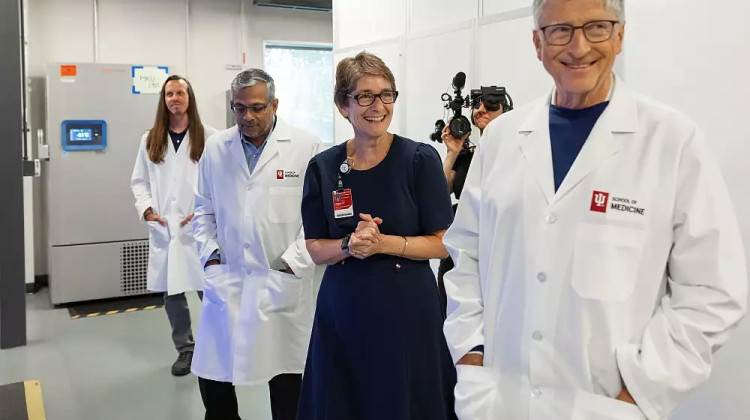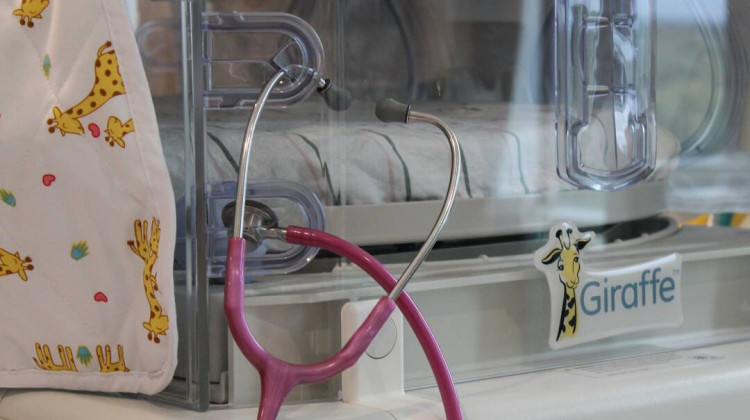
Bill Gates (right) stands next to the Executive Associate Dean for Research Tatiana Foroud. Gates visited the IU School of Medicine and Eli Lilly to learn about Alzheimer’s research.
Photo courtesy of Liz Kaye at Indiana UniversityBill Gates, the billionaire co-founder of Microsoft, visited the labs of the Indiana University School of Medicine this week to learn about the school’s research into Alzheimer’s disease.
Gates and representatives from the Bill and Melinda Gates Foundation attended this week's visit. Gates has previously made commitments to supporting Alzheimer’s research citing his own experience with his father.
Alzheimer’s is a fatal form of dementia that progressively deteriorates memory, language and thinking.
Across the country, the Alzheimer’s Association estimates some 7 million people suffer from the disease with that number expected to grow to 13 million by 2050.
African Americans and Hispanics are both almost twice as likely to have Alzheimer’s compared to white Americans - but are less likely to have a diagnosis of the condition.
Alzheimer's takes a big toll on Indiana residents too. According to the Alzheimer's Association, there are around 121,000 people aged 65 or older who have the disease, that's coupled with 216,000 people in the state who care for family members with the disease. This adds up to more than 22 million hours of uncompensated care worth north of $5 billion.
Tatiana Foroud, the executive associate dean for research at the IU School of Medicine and an Alzheimer’s researcher, said the school works collaboratively with drug manufacturer Eli Lilly, and Gates visited both places during the trip to Indianapolis.
“By coming to one city you were able to get this incredibly comprehensive approach to…what is the cutting edge going on in the space of Alzheimer’s disease,” she said.
Earlier this year, Eli Lilly received approval from the Food and Drug Administration for a drug that can moderately slow the progression of Alzheimer’s.
IU’s School of Medicine was one of the sites for clinical trials of the drug.
Foroud said during his visit, Gates asked questions about increasing access to the drug.
“Now that there are treatments, how do you make them equitable? How do you make sure everyone that is appropriate has access to that drug?” Foroud said.
More research still needs to be done. Foroud said the existing drugs work for patients with early stages of dementia but there isn’t treatment for people who are further along in the disease or as a preventative measure before someone starts showing symptoms.
Research into the disease at the School of Medicine received support as recently as 2023, when the school was awarded nearly $90 million by the National Institutes of Health.
Dr. Jay Hess, dean of the IU School of Medicine, said he’s hopeful the visit could help accelerate their work.
“That’s why we’re excited,” Hess said. “It was neat to meet Bill Gates but it’s more like this is really starting to build up momentum and I’m sure this won’t be the last people to visit the research team.”
Contact Health Reporter Ben Thorp at bthorp@wfyi.org.
 DONATE
DONATE







 Support WFYI. We can't do it without you.
Support WFYI. We can't do it without you.